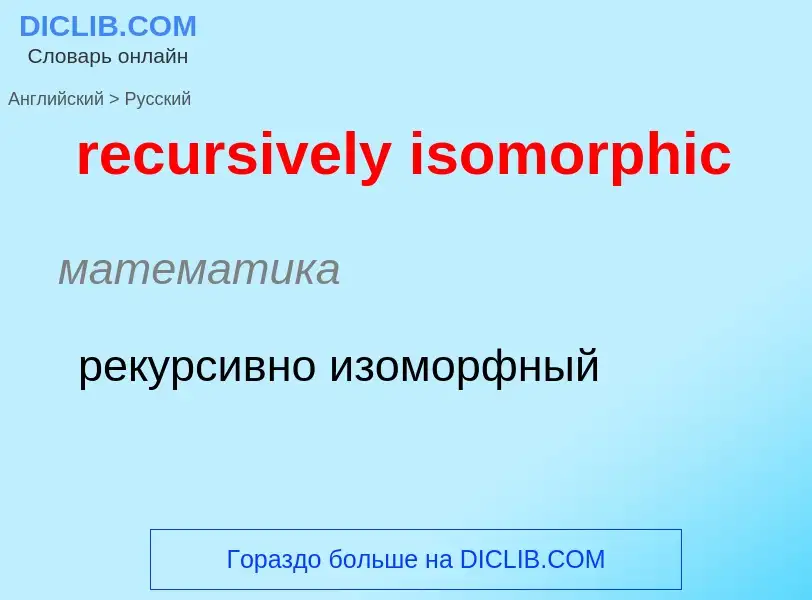Translation and analysis of words by ChatGPT artificial intelligence
On this page you can get a detailed analysis of a word or phrase, produced by the best artificial intelligence technology to date:
- how the word is used
- frequency of use
- it is used more often in oral or written speech
- word translation options
- usage examples (several phrases with translation)
- etymology
recursively isomorphic - translation to russian
математика
рекурсивно изоморфный
математика
рекурсивная неотделимость
Wikipedia
In mathematics and computer science, a recursive definition, or inductive definition, is used to define the elements in a set in terms of other elements in the set (Aczel 1977:740ff). Some examples of recursively-definable objects include factorials, natural numbers, Fibonacci numbers, and the Cantor ternary set.
A recursive definition of a function defines values of the function for some inputs in terms of the values of the same function for other (usually smaller) inputs. For example, the factorial function n! is defined by the rules
This definition is valid for each natural number n, because the recursion eventually reaches the base case of 0. The definition may also be thought of as giving a procedure for computing the value of the function n!, starting from n = 0 and proceeding onwards with n = 1, 2, 3 etc.
The recursion theorem states that such a definition indeed defines a function that is unique. The proof uses mathematical induction.
An inductive definition of a set describes the elements in a set in terms of other elements in the set. For example, one definition of the set of natural numbers is:
- 1 is in
- If an element n is in then n + 1 is in
- is the intersection of all sets satisfying (1) and (2).
There are many sets that satisfy (1) and (2) – for example, the set {1, 1.649, 2, 2.649, 3, 3.649, …} satisfies the definition. However, condition (3) specifies the set of natural numbers by removing the sets with extraneous members. Note that this definition assumes that is contained in a larger set (such as the set of real numbers) — in which the operation + is defined.
Properties of recursively defined functions and sets can often be proved by an induction principle that follows the recursive definition. For example, the definition of the natural numbers presented here directly implies the principle of mathematical induction for natural numbers: if a property holds of the natural number 0 (or 1), and the property holds of n + 1 whenever it holds of n, then the property holds of all natural numbers (Aczel 1977:742).

